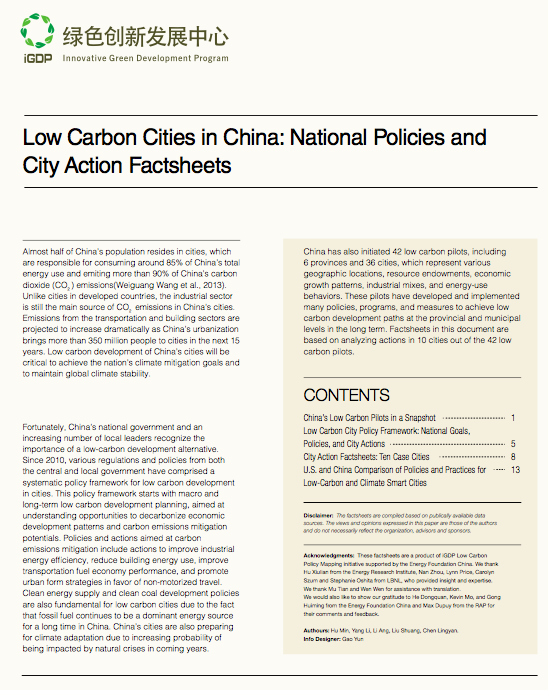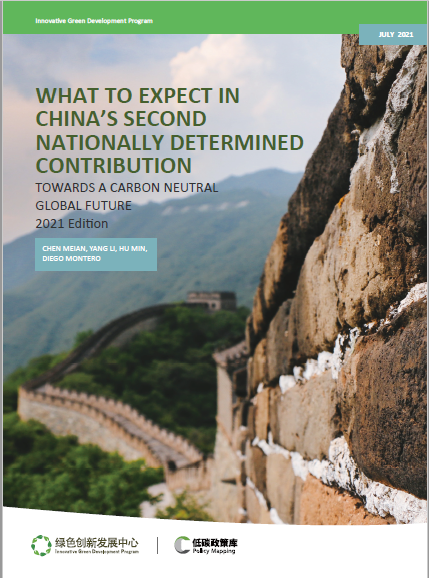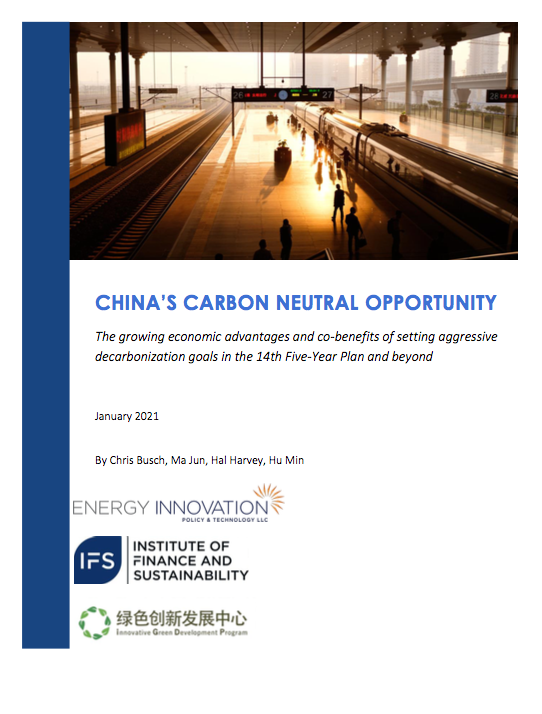Climate Governance
Climate change presents a significant global coordination challenge. Climate action is inextricably linked to macroeconomics, social development, and geopolitics, while supply chain security and international trade are vital to achieving global climate goals. iGDP works to raise climate ambition, drive climate action and regional cooperation on green, low-carbon technologies. iGDP also fosters a green, low-carbon, and just transition across the Global South.

Our Actions:
- Deepening International Dialogue: Participate in UN Climate Change conferences and facilitate multilateral dialogues on climate issues among key stakeholders, including China-Africa, China-US, and China-Europe partnerships.
- Tracking Climate Action: Share updates on national, sectoral, and regional climate actions through the China Carbon Neutrality Tracker (CCNT).
- Raising Climate Ambition: Analyze Nationally Determined Contributions (NDCs), model national long-term strategies, and evaluate the strength of climate commitments.
- Exploring Emerging Topics: Focus on critical emerging research areas such as Just Transition, green trade, and low-carbon supply chain security.
Publications
What to Expect in China's Second Nationally Determined Contribution
2021-07-01
Report
This report is an updated version of our 2019 report on China’s NDC. It reviews the new international and domestic sustainable development trends since the last report and discusses the implementation of China’s first NDC. The second part of the report draws on newly issued strategic plans and policies during the 13th and 14th Five-Year plan periods to explore the climate policy options that may shape China’s second NDC.
China's Carbon Neutral Opportunity
2021-01-01
Report
This joint paper by Energy Innovation, innovative Green Development Program, and the Institute for Finance and Sustainability shows that China has the opportunity to, and should, strengthen its climate commitments by setting a target for peaking its carbon emissions before 2030.
The report shows how clean energy beats fossil fuel technologies on price and makes carbon neutrality an economic driver. By increasing the pace of its domestic clean energy transition, China can induce additional technological innovation to enhance the competitiveness of its clean technology firms, while at the same time improving its energy security and achieving earlier carbon peaking.
LOGIC: Low-carbon & Green Index for Cities
2018-09-13
Report
Low Carbon Cities
LOGIC provides a system to track progress, a database to evaluate performance, and an analytical tool to help cities identify improved solutions for low carbon and clean energy development, and early carbon peaking.
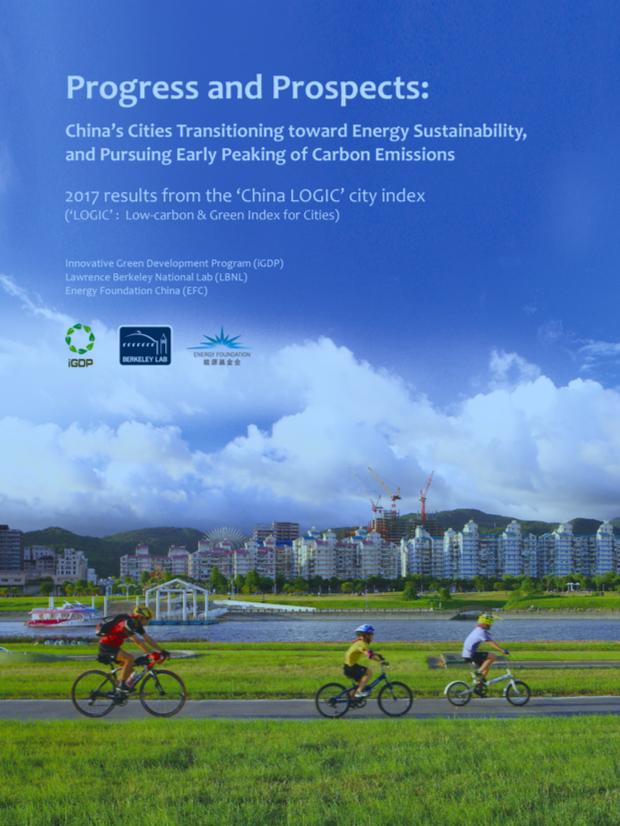
China’s Low Carbon Cities: Carbon Peak Pledges and Progress on Green Transition
2018-06-27
Factsheet
Low Carbon Cities
This factsheet provides an overview of the policies and other actions that China’s low carbon pilot cities have taken to date.
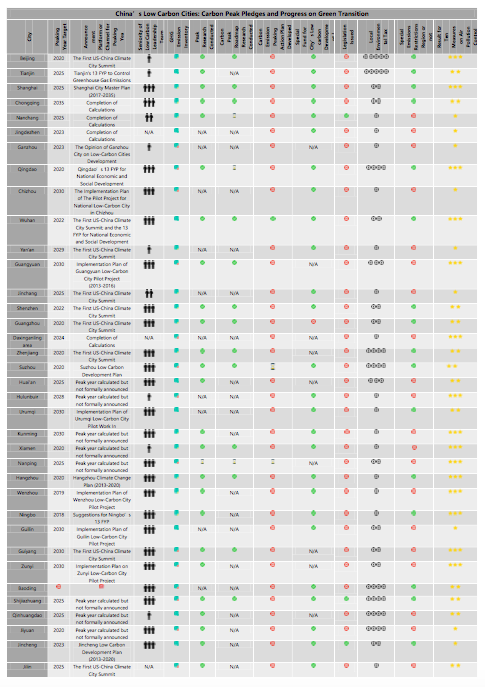
Wuhan Low Carbon Development Strategy and Policy Practices Background Report
2018-06-22
Report
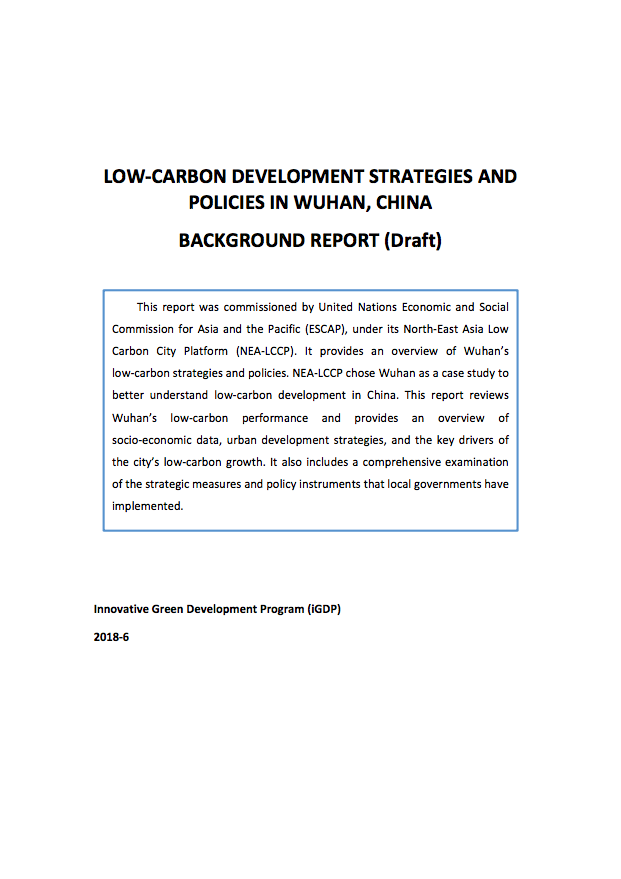
An Integrated Strategy to Assist China's Cities in Achieving an Early Carbon Emissions Peak
2018-01-08
Working Paper
This paper offers a set of enhanced policies and practices to help China’s cities transition toward a deep de-carbonization development path, sustaining economic growth with lower emissions, better air quality, and more livable communities.
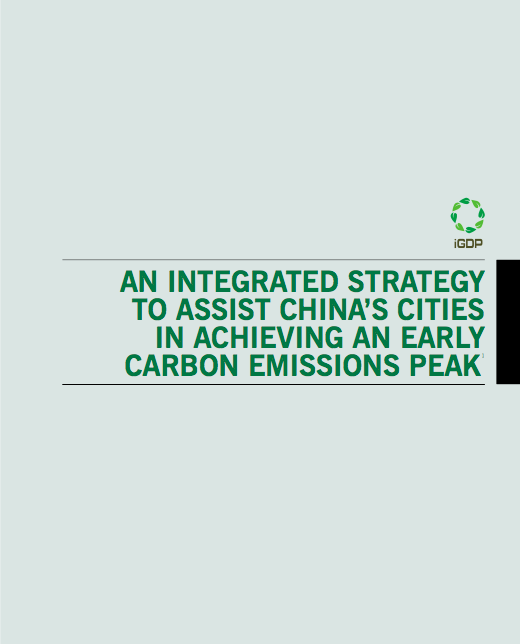
Recommedations on Principles and Objective-Setting for Low-Carbon Pilots
2017-09-06
Working Paper
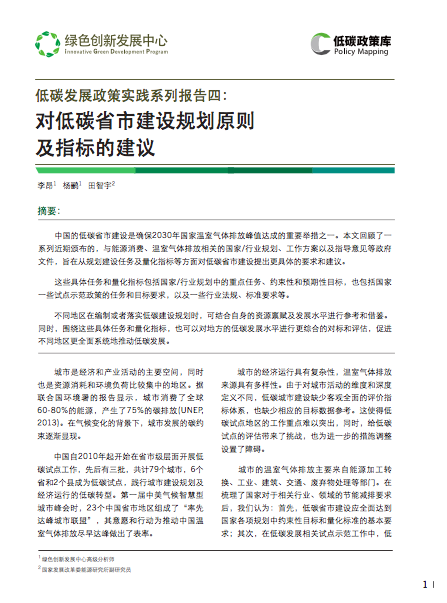
Alliance of Peaking Pioneer Cities Action Fact Sheet
2016-07-15
Working Paper
This factsheet provides key information about China’s Alliance of Peaking Pioneer Cities – a collection of cities that is striving to achieve peak carbon emissions earlier than the national target year.
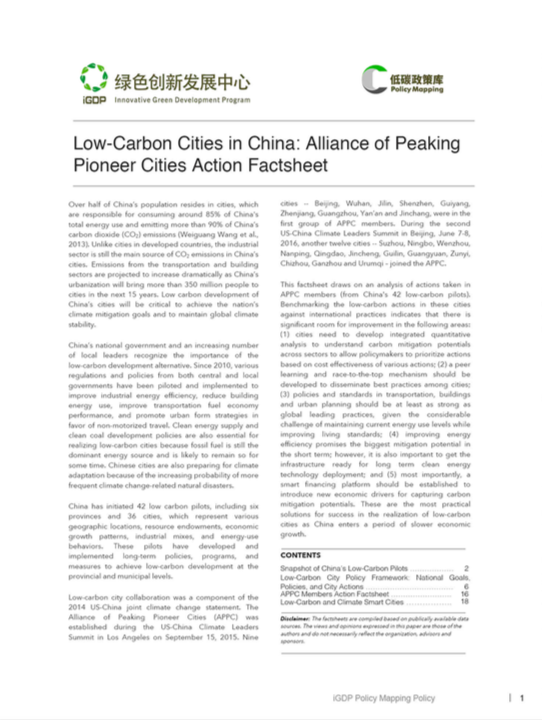
Low Carbon Cities in China National Policies and City Action Factsheet
2015-09-01
Factsheet
This factsheet provides an analytical review of the actions taken in 10 of the 42 pilots in China’s first batch of low low carbon pilots.
